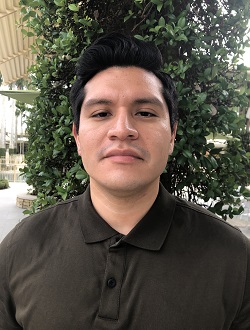The holiday season can be a joyful time, full of gatherings, laughter, and celebration with loved ones. However, for those struggling with eating disorders, it can also be a season full of stress, anxiety, and isolation. Food-focused holidays like Thanksgiving, Christmas, Kwanzaa, and Hanukkah often amplify these challenges, as meals and gatherings become central parts of the celebrations. Recognizing potential triggers and finding ways to prepare can help you navigate these holidays in a way that prioritizes your mental health.
Understanding Eating Disorders and the Holiday Season
Eating disorders are complex mental health conditions that affect how individuals perceive food, eating habits, and their bodies. They include anorexia nervosa, bulimia nervosa, binge eating disorder, and other specified feeding or eating disorders (OSFED). For many, the holiday season brings unique challenges, such as:
- Increased Exposure to Food: Holidays are often centered around meals, snacks, and treats, making it hard to avoid food-focused gatherings.
- Pressure to Partake in Traditions: Food is a major part of many holiday traditions, creating added pressure to participate in meals that may feel overwhelming.
- Social and Family Dynamics: Gathering with family and friends can intensify stress, especially if conversations turn to food, eating habits, or body image.
- Expectations and Comparisons: Holidays often come with societal expectations around appearance, which can heighten feelings of self-judgment and comparison.
Understanding these challenges and planning coping strategies can make holiday gatherings more manageable.
Strategies for Managing Food-Centered Celebrations
Set Boundaries with Family & Friends: Boundaries can be a powerful tool to help protect your mental health during holiday gatherings. If you feel comfortable, consider having a conversation with supportive friends or family members ahead of time to explain what types of comments or behaviors may be unhelpful. For example, topics related to diets, body image, or weight can be particularly triggering. By asking loved ones to focus on non-food-related conversations, you give yourself the space to enjoy the gathering without added stress. A simple explanation, like mentioning that you prefer not to talk about food or body image, can be a gentle way to set these boundaries while still participating in the holiday experience.
Create a “Safe Plate”: Creating a “safe plate” can be a helpful strategy to ease anxieties around mealtime. This involves selecting foods that feel comfortable and manageable, which can help create a sense of control in an otherwise overwhelming environment. You may decide in advance which foods you’ll include or bring a dish that aligns with your preferences. Building your plate with a mix of foods you enjoy and feel comfortable with can provide a sense of comfort and familiarity. Having a trusted person with you who understands this strategy can make mealtime even more manageable, as they can offer support and understanding.
Have a Support System: Having a trusted friend or family member present during holiday gatherings can serve as a grounding influence. This person can provide reassurance and help keep conversations positive, offering comfort if you start feeling overwhelmed. By setting up a discrete way to check in, like a text message or a simple signal, you can have someone on hand to offer quick support. Knowing that you have someone by your side can help ease anxiety, reminding you that you’re not alone and that support is readily available if you need it.
Prepare an Exit Strategy: If holiday gatherings feel overwhelming, it’s helpful to have an exit strategy. This might mean planning to take breaks throughout the event, deciding to arrive late or leave early, or simply stepping away if needed. Having an exit strategy can give you the freedom to recharge and return to the gathering on your own terms. Letting a supportive friend or family member know about your plan can make it easier to excuse yourself and reduce the pressure to stay if things become too stressful.
Mindfulness and Grounding Techniques
Mindfulness practices can be invaluable during the holidays to help you stay present and manage feelings of stress and anxiety. Here are a few techniques you can use discreetly:
- Deep Breathing: Deep, slow breathing can calm your nervous system. Take a few slow breaths, inhaling for four counts, holding for four, and exhaling for four.
- 5-4-3-2-1 Grounding Exercise: This simple exercise brings you back to the present by identifying five things you see, four things you feel, three things you hear, two things you smell, and one thing you taste.
- Progressive Muscle Relaxation: If you feel tension building, try tensing and relaxing different muscle groups, starting with your feet and moving up toward your head. This helps release tension and refocuses your mind.
Embracing Non-Food Holiday Traditions
Engaging in non-food-centered traditions can make holiday gatherings more enjoyable and less overwhelming. Decorating, setting up holiday lights, or trimming the tree can shift the focus from food to activities that feel meaningful and festive. Participating in holiday crafts, playing games, or making ornaments also offers opportunities for joy and connection without centering around eating. If gift-giving or storytelling are part of your holiday traditions, these activities allow you to focus on the season’s warmth and spirit, creating special memories that aren’t food-related.
Coping with Challenging Conversations
Family gatherings often bring up conversations around diets, food, or body image, which can be triggering for someone with an eating disorder. When faced with uncomfortable topics, redirecting the conversation to a new topic can help shift the focus and reduce anxiety. A simple, direct response to questions about your eating—like “I’m comfortable with my choices, thank you”—can signal your boundaries respectfully. Engaging in self-compassion throughout these moments is also essential; try to acknowledge your feelings without judgment, reminding yourself that it’s okay to have a difficult time and that your emotions are valid.
Creating a Post-Holiday Self-Care Plan
After the festivities, prioritizing self-care is essential. Setting aside time to process and reflect on your holiday experiences can help restore balance. Journaling can provide a safe space to
explore the highs and lows of the season. Engaging in relaxing activities like taking a bath, reading, or watching a comforting movie can ease the transition back into routine and give your mind and body a chance to recharge. Reconnecting with your support system, whether through a therapy appointment, support group, or a casual conversation with a friend, can provide reassurance and perspective as you process your experiences.
Building a Recovery-Friendly Holiday Mindset
Creating a holiday mindset that supports your recovery involves recognizing what’s right for you. Practicing self-compassion is crucial; remind yourself that it’s okay to have mixed feelings about the holidays and that your worth is not defined by how you handle gatherings or meals. Celebrating small victories—like setting boundaries, practicing mindfulness, or showing up despite your fears—can help build confidence in your recovery journey. If things become overwhelming, reaching out to a counselor, therapist, or support group can provide the extra encouragement needed to navigate the season. Remember that every step you take is a positive one, helping you move forward on your path toward healing.
Seeking Support During the Holidays
If you or a loved one is struggling with disordered eating during the holidays, remember that support is available. Many organizations, counselors, and hotlines offer resources and assistance to guide individuals through challenging times. This holiday season, prioritize your well-being and remind yourself that recovery is a journey worth protecting.
Whether this season is challenging or joyful, take it one moment at a time. You are not alone, and there are people ready to support you on your path toward healing. This year, focus on what feels right for you, and remember that every step you take is a meaningful one in your recovery journey.

![[11.11] #MM46 Veterans Day BLOG](https://swflcounsel.com/wp-content/uploads/2024/11/11.11-MM46-Veterans-Day-BLOG.jpg)







